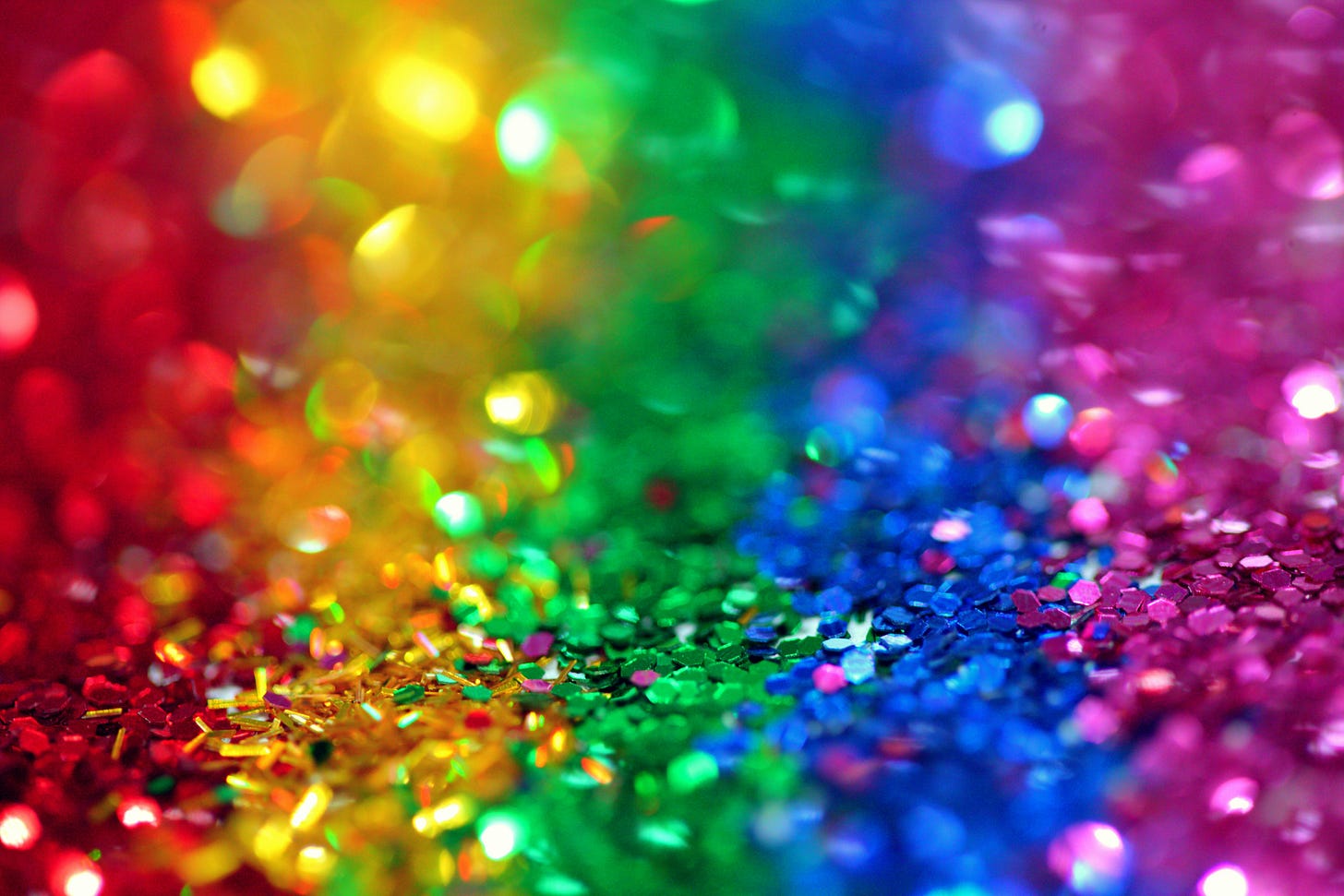The Never-Ending Story, Coming Out, Again and Again: Why Coming Out is a Lifelong Process
The coming out process is not a singular event but a recurring journey that many Queer People bravely and resiliently navigate throughout our lives.
Pride Month is an annual celebration in June that honors the struggles and triumphs of the Queer community over the years. This month commemorates the Stonewall uprising in 1969, which was a crucial moment in the modern Queer rights movement.
Pride Month recognizes the progress toward equality while highlighting the ongoing fight for justice, acceptance, and inclusivity for 2SLGBTQIA+ Peoples.
In the spirit of visibility, many Queer people will initially "come out" during Pride month.
Coming out isn't something we do just once.
Once we "come out," we must choose to do it (or not) with every new person we meet and every new relationship we enter for the rest of our lives.
When most people outside of the Queer Community think of "coming out," they think of someone's first time coming out to people, which is often a challenging, pivotal, and nerve-wracking experience for many Queer people.
This experience can be a significant turning point in one's life, often accompanied by a sense of vulnerability and a deep desire for authenticity and acceptance.
In this early phase, many of us struggle with the language to explain what we know.
As a nonbinary person who is also gender-fluid, it was tricky for me to explain my complex, flowing, fluid gender experience and the situations, events, and people that triggered these changes in me.
Early in my coming out phase, I thought people were entitled to detailed information about me; however, these days, I typically limit how many details I give out to people (unless I know someone is safe).
People outside of the Queer community may not understand why many of us choose to stay in closets or the pain we feel when we finally work up the nerve to share something about ourselves with someone else (who doesn't know what life is like in our bodies and minds) and have the other person react with scorn, doubt, anger, or disgust, unable to sit with and hear what we are saying.
We don't hide in closets to be manipulative or deceptive; we hide in closets because closets are safe places.
After all, the world can be unkind, cruel, and even dangerous to people who stand out. This isn't just true for Queer People.
A person may find themselves in many types of closets, especially if parts of their identity are invisible.
I often speak of disclosing and unmasking my NeuroDivergent Identities as coming out of a different kind of closet because regardless of which identity I am revealing to people (a NeuroDivergent identity or a Queer one), the reactions and results are similar.
When I share my various identities (because I am Queer in numerous ways and NeuroDivergent in multiple ways), there is a spectrum of reactions, depending on how widely understood the identity I am sharing is by those in society.
For example, saying I'm attracted to people of all genders, NOW, is something most people at least understand and can conceptualize.
However, years ago, I was frequently told (even by members of the Queer community) that I had to "pick a side" and like one of the other.
Being ADHD is also something a lot of people understand because many people know at least one or two ADHD adults.
Autism, on the other hand, is not as well understood, and often, when I disclose this part of myself, people react with doubt because I don't fit their idea of what they think "Autism looks like."
Paid subscribers have access to the rest of the story. Thanks to every one of you for supporting my work.
Half-Priced Low-Income Subscription Available
If you are in need of a discount, please use the link below to get your subscription at a deep discount (because I don't want money to be an obstacle to people):
https://neurodivergentrebel.substack.com/LowIncomeDiscount
For readers experiencing financial hardship, please note that this offer is exclusively for you. This discount is offered on the “honors system” - I am not going to ask anyone for proof.
Please, kindly refrain from taking this offer if you do not need it.
I hope this helps,
- Lyric
Keep reading with a 7-day free trial
Subscribe to NeuroDivergent Rebel’s Substack to keep reading this post and get 7 days of free access to the full post archives.






